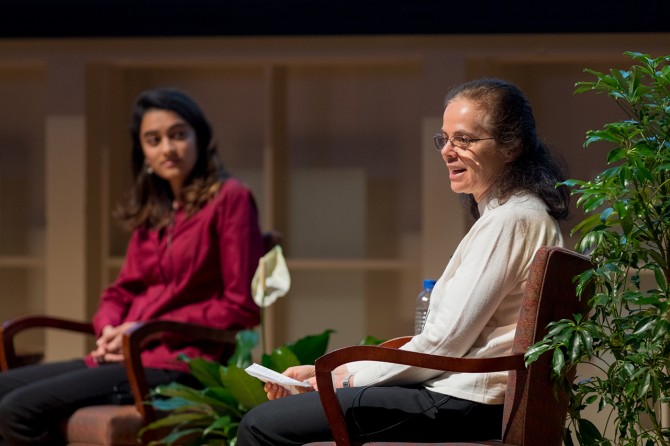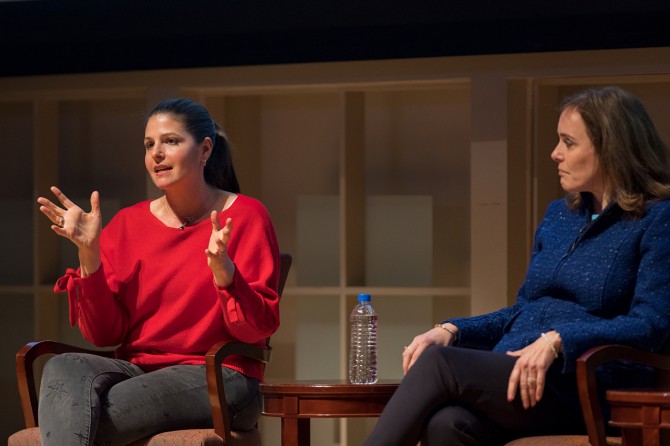Panel tells how ‘Geek Girls’ succeed in tech
By Teagan Todd
Dozens gathered in the Alice Statler Auditorium April 18 to hear panelists discuss the past, present and future of women in technology. “A Conversation with Geek Girls” featured Heather Cabot, co-author of “Geek Girl Rising,” a book that explores what Cabot refers to as “the sisterhood [that has been] shaking up tech.”
Cabot told the audience the subtitle for “Geek Girl Rising,” “the sisterhood shaking up tech,” was born of numerous interviews with women who had worked against the odds and been successful in the tech industry.
“What was it about these women, the way they were raised, the way they were educated, experiences that they had, that gave them the fortitude to succeed in this male-dominated industry?” Cabot asked. The answer to all of those questions was successful women had access to a “sisterhood” that helped support them and their journey in the industry, she said.
“I think one of the major changes that I see is really an awareness and companies realizing that there’s a business imperative to have a diverse workforce,” said panelist Ana Piznuck ’84, senior vice president and general manager of HPE Pointnext. “Not just because it’s a nice thing to do, but because it’s a financially sound thing to do, as well.”
Representation of women and other minorities in tech fluctuated during her more than 30 years in the industry, Pinczuk said, but has been on the rise in recent years.
Rediet Abebe ’19, a doctoral student and co-founder of Black in AI at Cornell who did not major in computer science during undergrad, emphasized that it’s never too late to pursue an interest in computer science.
Cornell student Avani Bhargava ’20, co-president of Women in Computing at Cornell, agreed. “With the fact that we are on the forefront of creating products and technology that will change the way that every person lives their life, I think that looking at who composes the workforce of people who are building these products is really important,” Bhargava said.
One audience member asked the panel about allyship and the role of nonminorities in improving the representation of minorities in tech. Pinczuk said nonminorities play a crucial role in increasing representation and must be a part of conversations in which the cultures and policies of companies are reconfigured to better suit changing demographics.
The panel was moderated by Jacob Gould Schurman Professor of Computer Science Éva Tardos.
Teagan Todd ’20 is a writer intern for the Cornell Chronicle.
Media Contact
Get Cornell news delivered right to your inbox.
Subscribe


